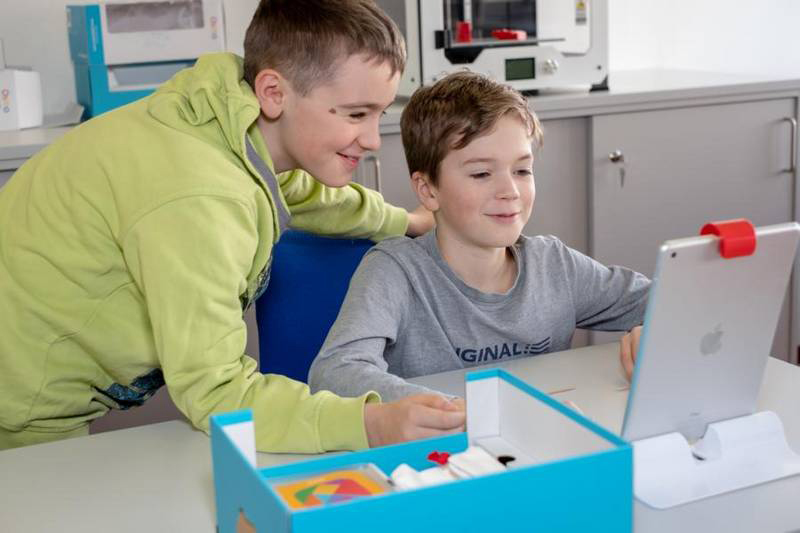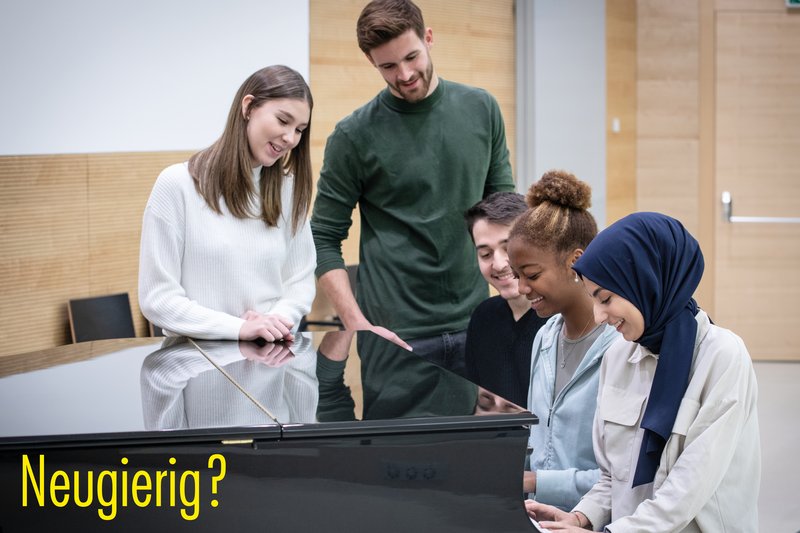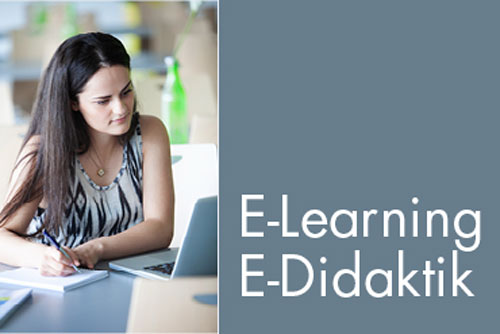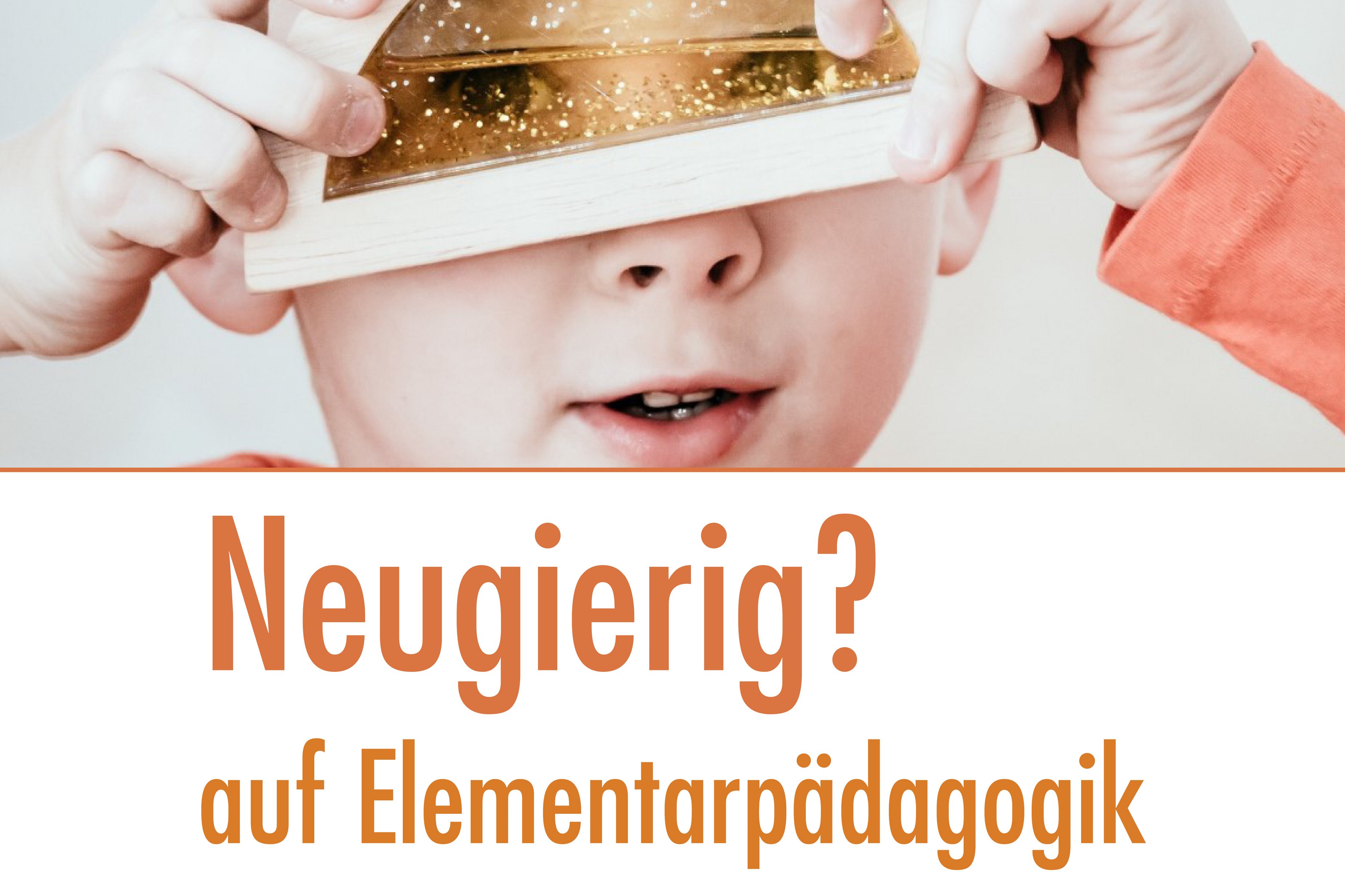Please note that all courses marked with "CFI" are courses organised by the “Centre for Internationalisation”. We recommend to take those courses to avoid course time collisions. It's also guaranteed that those courses are suitable for Non German speakers.
Course program for international students winter semester
Introductory week - 1 ECTS
Please put this course title and number for the introductory week into your learning agreement: Introduction to Austrian Culture, Communication, Education - 28WINTR01N
Participation in the introductory week is mandatory for all incoming students at PHOOE, so please plan your travel accordingly! The program includes a welcome part, excursions in the city and to the mountains with a lot of information about Austrian geography and culture, all technical information you need to know about the university's systems like Digital Learning Management, your electronic course calendar, using the computer systems, an introduction to schoolpractice, etc.. It usually runs for 4 days and usually starts in the week before regular courses start, so for the winter semester usually in the last week of September.
Subject Area 1 - Teaching Practice, Supervision and Teaching Methods
Classroom Management & Innovative Teaching Strategies
Course Title: Classroom Management & Innovative Teaching Strategies
Course number: 28WCMIS01N
ECTS Credits: 5
Course content:
- Preventive and reactive strategies dealing with conflicts in class
- Professional communication in class
- Different items of good classroom management based on Jacob Kounin
- Creating learning environment for different learners
- Characteristics of effective teaching and learning
- How to organise things
- Learners' differences and the need of individualisation in teaching as a result
- Different roles of a teacher (controller, organiser, assessor, prompter, participant, resource, tutor, observer)
- Different methods of teaching
- Concept of one's own pedagogical self image
- New forms of assessment (feedback given by competences, forms of self assessment, working behaviour, social behaviour)
- How to form groups in class
Connecting Classrooms in a Digital World
Course Title: Connecting Classrooms in a Digital World
Course Number: 28WCOCL01N
ECTS Credits: 3
Course content:
This course combines eTwinning with Technology-Enhanced Learning (TEL) to equip educators with the skills to integrate digital tools and international collaboration into their teaching. Participants will learn how to create, manage, and enhance eTwinning projects using modern educational technologies. The course includes hands-on activities, group work, and practical exercises to develop skills in digital pedagogy, online collaboration, and technology-driven teaching strategies.
Part 1: Introduction to eTwinning and Technology-Enhanced Learning
• Overview of eTwinning and TEL in modern education.
• Registration and profile setup on the eTwinning platform.
• Exploring successful projects that integrate TEL.
Part 2: Planning and Managing eTwinning Projects with TEL
• Defining project objectives and integrating TEL elements.
• Identifying project partners and structuring collaboration.
• Ethical considerations, eSafety, and responsible digital citizenship.
Part 3: Digital Tools for eTwinning and TEL
• Introduction to digital collaboration tools (e.g., TwinSpace, Padlet, Canva, Kahoot, Google Tools, LMS platforms).
• Interactive learning techniques using AR, VR, and gamification.
• Assessment and feedback strategies in TEL-enhanced projects.
Part 4: Implementation, Reflection, and Future Perspectives
• Launching an eTwinning project with TEL integration.
• Overcoming challenges and ensuring active student participation.
• Evaluating project outcomes and preparing a final presentation.
• Future opportunities for digital learning and international collaboration.
Digital Tools: Learning & Teaching in the 21st Century
Course Title: Digital Tools: Learning & Teaching in the 21st Century
Course number: 28WDIGT01N
ECTS Credits: 3
Course content:
Module 1: Foundations of ICT in Education
• Understanding 21st-century skills and digital literacy
• Digital tools for classroom management (Google Workspace, Microsoft 365)
Module 2: Engaging Students with Digital Tools
• Interactive presentations (Canva, Prezi, Mentimeter)
• Gamification & quizzes (Kahoot!, Quizizz, Socrative)
• Learning Management Systems (Google Classroom, Moodle)
Module 3: Digital Content Creation & Assessment
• Creating engaging e-learning materials (H5P, Genially)
• Online assessment & feedback tools (Google Forms, EdPuzzle)
Module 4: Cybersecurity & Ethical Digital Practices
• Online safety, data privacy, and digital footprint
• Ethical AI use in education
Learning Beyond the Classroom: Strategies for Experiential Education
Course Title: Learning Beyond the Classroom: Strategies for Experiential Education
Course Number: 28WLBCR01N
ECTS Credits: 3
Course content:
Planing, Conducting und Reflecting School Fieldtrips:
Module 1: Theoretical Foundations of Learning Outside School
- Benefits of outdoor, experiential, and place-based learning
- The role of nature, museums, and community spaces in education
Module 2: Planning & Implementing Outdoor Learning Organizing field trips & outdoor learning experiences
- Using storytelling & inquiry-based learning in real-world contexts
- Collaboration with museums, science centers, and local organizations
Module 3: Digital Tools for Outdoor Learning Mobile apps for outdoor learning (Google Earth, Seek by iNaturalist)
- Creating digital field journals (Padlet, Book Creator)
- Virtual field trips and augmented reality experiences
Module 4: Assessment & Reflection in Outdoor Learning
- Documenting and assessing learning outside the classroom
- Reflection techniques (digital portfolios, video diaries, peer feedback)
Final Project
Design an outdoor learning activity incorporating digital tools and assessment strategies.
Lesson Planning and Designing Teaching Materials
Course Title: Lesson Planning and Designing Teaching Materials
Course number: 28WLPDM01N
ECTS Credits: 2
Course content:
- Individual planning for school practice in the practice group
Creating material - Preparing material in a heterogeneous group
- Discussing, getting to know, and if time trying out about hundred methods of teaching regarding listening, talking,reciprocal reading, writing, story telling, songs and games
MediaLab
Course Title: *MediaLab
Course Number: PWahlMeLa1
ECTS Credits: 1
Course content:
In these times of digitalization and rapid change in our media landscape, new paths and foundations are being created for the education of the future. The MediaLab uses creative approaches to redesign teaching and learning processes and develops ideas that take into account the changes and adaptations of our modern society.
The focus is on
- Animation and video
- Digital art genres
- Artificial intelligence and art
- Legal and ethical aspects
- Multimedia storytelling
- Augmented reality
all courses marked with * are outside the international institute and it cannot be guaranteed that participation will be possible.
Outdoor Education in sustainable and inclusive context
Course Title: Outdoor Education in sustainable and inclusive context
Course Number: 28WOUTE01N
ECTS Credits: 3
Course content:
Children and adolescents nowadays often miss a close connection to nature, a resource that can help to gain self-awareness, self-confidence and can foster emotional strength.
This course will provide you with a lot of adventurous and also gentle methods to bring children and adolescents in closer connection to nature and also offers learning opportunities in the outdoors, for science and sports education. A strong focus goes on team-building exercises for the classroom.
Outdoor activities and excursions (overnight stay in a hut)
Equipment: Hiking shoes, sleeping bag, sports clothes, warm trouses and jackets, warm socks
Please keep in mind that this course will be blocked on a weekend. You will receive further information including the exact date during the welcome week.
School Placement: Ways of writing and discussing reflective portfolios
Course Title: School Placement: Ways of writing and discussing reflective portfolios
Course number: 28WPLAC01N
ECTS: 5
Half a day, usually one morning (Wednesdays), incoming students to PHOOE spend in one of our practice schools, with selected practice teachers. They observe, practice teaching themselves and reflect. Additionally to the practice teacher every team has a tutor from the university assigned.
Please also choose the course „Lesson Planning and Designing Teaching Materials“ to accompany your practice teaching.
Attending school practice is compulsory for incoming students at PHOOE!
Teaching and Research of Ukrainian Children in the Austrian School System (for Ukrainian students only)
Young Ukrainian students and teachers in their Master's studies, will do an intensive practice/placement working with Ukrainian children in Austrian schools. The project offers Ukrainian students studying in education/pedagogy/language the opportunity to complete an intensive internship.
Using Video and Radio in Schools
Course Title: Using Video and Radio in Schools
Course Number: 28WVIDE01N
ECTS Credits: 3
Course content:
In this course you will get basic competences in using video and audio in the classroom. We learn how to produce and publish podcasts and to do radioplays and festures with young people. You take part in student TV and radio live shows and learn how this can be done.
From recording to editing and publishing you learn mostly in practical work - there is no previous knowledge or technical competences required. In the winter semester students take part in an international "Video in Education" competition, in which students from around 10 European universities produce educational videos in a "hackathon style" event in 4 days. Most of the course time is fulfilled during that period which usually takes place end of November (http://www.editvideochallenge.org)
Please keep in mind that at least part of this course will be blocked - you will receive details and dates during the welcome week.
Research, discovery, design - STEAM at primary school level
Course Title:
Research, discovery, design - STEAM at primary school level
Course Number: 28WMINT02N
ECTS Credits: 3
Languages of instruction:
English
Course content:
The course offers a practical approach to research-based and discovery-based learning
in line with the STEAM approach, in which scientific, technical and mathematical content
is combined with art and creativity. A particular focus is on designing inclusive learning
environments in which all children - regardless of gender, background or individual circumstances -
can develop their potential. Students learn how to specifically encourage children's curiosity
and creativity and how to design learning spaces in such a way that mistakes are used as learning opportunities.
By combining theory and practice, they develop their own teaching ideas, reflect on their role as a teacher
and acquire skills to implement STEAM learning processes in a motivating, inclusive and everyday way.
Special requirements:
In the practical units as part of the course, approx. 20 € are needed for materials such as batteries, LEDs, filament for 3D printing, etc.
Teaching and Learning methods:
Explorative learning phases with experiments and open-ended tasks
Working with everyday phenomena and child-friendly questions
Group and project work, cooperative forms of learning
Development and analysis of exemplary inclusive STEM units
Use of digital tools to support the research process
Reflection discussions, peer feedback and evaluation in learning teams
Method of evaluation and/or course completion requirements:
Documentation and analysis of own research-based learning process
Development and presentation of an inclusive STEM/STEAM learning program for the primary level
Reflection on own attitude and didactic action based on theoretical models
Teaching across borders (IKS)
Course Title:
Teaching and Learning across borders
Course Number:
28SSTLAB02
ECTS Credits:
3
Languages of instruction:
English
Course content:
Being a teacher in Europe: a common living space
- Reflection on culture(s), language(s), norms and values
- Education policies in Europe
- History of migration
- Impact of migration on European societies with focus on education
Being a teacher in Europe: development of plurilingual and pluricultural competences
- Identity and languages
- Identity and cultures
Being a teacher in Europe: working in a multicultural context
- Didactics of plurilingualism: an overview
- Education for peace and mutual understanding
Special requirements:
None
Teaching and Learning methods:
Interactive learning and teaching forms (learning from each other):
- small workshops, presentations, group work, discussions, etc
- excursions, support of PH-OÖ international events
Method of evaluation and/or course completion requirements:
Continuous assessment
Subject area 2 - Music, Arts and Handicraft
Art in Education
Course Title: Art in Education
Course Number: 28WARTT01N
ECTS Credits: 2
Course content:
We work practically on various design topics such as painting, graphics, printmaking, photography, lettering and mixed media. Lectures are also given on these topics; the different techniques and ideas will be useful and practical for your art teaching.
Special requirements:
about 15€ for painting-, drawing-, printing material, paper, colored pencils, felt tips (I will buy the sketchbook for everyone)
things to bring to the class: black fineliner (permanent), glue, scissors, ruler
Instrumental music 1 piano or guitar (please select!)
Course Title: * Instrumental music 1 (small groups) piano or guitar (please select!)
Course Number: P3BBMK2
ECTS Credits: 1,5
Course content:
- Children's songs
- Songs from different cultures
- Accompaniment patterns
- cadences
- play simple short melodies and song beginnings
Special requirements:
Basic knowledge of the instrument
all courses marked with * are outside the international institute and it cannot be guaranteed that participation will be possible.
MUSEEK: Inclusive and intercultural approaches in music teaching
Course Title: MUSEEK: inclusive and intercultural approaches in music teaching
Course number: 28WMUSE01N
ECTS Credits: 3
Course content:
- The unifying quality of music and dance, between people as well as nations
- The experience of different musical cultures and different musical approaches
- acquisition of pieces of music, songs and dances for school and for the own teaching
- active playing in small and larger ensembles
- exercises in order to improve the individual instrumental and vocal skills
- The interconnectedness of music and movement - the body as an instrument – body percussion
- basic striking techniques on percussion instruments (Cajon, Conga, frame drum, ...) and their applications
- exercises for rhythm training
- ear training
- exercises for musical interaction and improvisation
- reflection on musical theory in the act of playing and corresponding challenges
- producing musical instruments yourself („thunderdrum“ , Kazoo,...)
Wahlfach Chor (Choral Singing advanced)
Course Title: * Wahlfach Chor (Choral Singing advanced)
Course number: PWahlChor1
ECTS Credits: 2
Course content:
- Breathing and singing exercises
- Selected literature in various styles
- Choral movements from jazz, pop and popular music in mixed movements
1 The Beatles: ‘Here Comes The Sun’
2 J. S. Bach: ‘Air For Advent’
3. Bette Midler: ‘From A Distance’
4. Rachel Platten: ‘Better Place’
includes mandatory performance at university Christmas party
all courses marked with * are outside the international institute and it cannot be guaranteed that participation will be possible.
Subject area 3 - Global Citizenship and Culture
Developing European School Cooperation (eTwinning) (IKS)
| Title |
| ||
| Number |
| ||
| Type |
| ||
| Semester hours |
| ||
| Offered in |
| ||
| Lecturer (Assistant) |
| ||
| Administrative Mitarbeiter*innen | |||
| Organisation |
| ||
| Curriculum / ECTS Credits |
| ||
| Course description | |||
| Content | |||
| Previous Knowledge Expected |
| ||
| Objective (Expected Results of Study and Acquired Competences) | |||
| Languages of Instruction |
| ||
| Teaching and Learning Method (Transfer of Skills) Workload for Students |
| ||
| Scheduled Dates |
| ||
| Course Criteria & Registration |
| ||
| Exam Information | |||
| Prerequisites according to curriculum |
| ||
| Assessment (Exam Method and Evaluation) | |||
| Exam Dates & Registration |
| ||
| Number of Exam Dates per Semester |
| ||
Sustainability and Peace Education in Teaching
Course Title: Sustainability and Peace Education in Teaching
Course Number: 28WSUPE01N
ECTS Credits: 3
Course content:
- Analysis of the 17 Sustainable Development Goals
- Discussion of the notion “globalization”
- Opportunities and challenges of living in a (seemingly) globalized world
- Characteristics of the global citizens – implications for teaching children
- Tension between global interconnectedness and isolationism
Insight Austria: A Cultural Journey for international Students
Course Title: Insight Austria: A Cultural Journey for international Students
Course Number: 28WAUSC01N
ECTS Credits: 2
Course content:
This course offers an engaging introduction to Austrian culture, history, and contemporary society. Designed especially for international and Erasmus students, it provides a broad overview of Austria’s cultural landscape—from historical developments and national identity to modern-day customs, politics, and everyday life. Through lectures, discussions, field trips, and multimedia materials, students will explore key aspects of Austrian culture, including:
- Historical milestones shaping Austrian identity
- Art, music, and literature in Austrian heritage
- Social norms, traditions, and values
- Austria’s role within the European Union
- Regional diversity and multicultural perspectives
- Contemporary issues in politics, media, and public discourse
The course encourages intercultural exchange and critical reflection, helping students place Austrian culture in a broader European and global context.
Learning Outcomes:
- Upon successful completion of the course, students will be able to:
- Identify and explain key elements of Austrian cultural and social life
- Reflect on cultural similarities and differences
- Demonstrate intercultural awareness and communication skills
- Engage critically with cultural representations and media
Assessment:
- Participation and attendance, short written reflections or group presentations, and a final project or essay.
Teaching Methods:
- Interactive lectures, group discussions, excursions (e.g., museum or cultural institution visits), and guest speakers.
Subject area 4 - Sports, PE and Health
Basic motor skills and movement games
Course Title: * Basic motor skills and movement games
Course number: P3BBBS1
ECTS Credits: 1,5
Course content:
- Varied, movement-rich and differentiating offers for the individual basic motor activities
basic motor activities (walking/running, hopping/jumping, climbing...) - Small games to promote physical and mental development and learning processes
learning processes (fair play, accepting rules, team and group building) - Exercise programmes to stabilise posture
- Proper use of large and small equipment.
- Safeguarding of exercise stations
all courses marked with * are outside the international institute and it cannot be guaranteed that participation will be possible.
Basics of short sport games
Course Title: * Basics of short sport games
Course number: SeBBS06x01
ECTS Credits: 1,5
Course content:
- Practical implementation and application of the most important categories of small games and sports games
- Preparatory small ball games
- General and special basic skills of small games and sports games (technical skills, tactical skills, instruction and variation of games)
- Knowledge of important and relevant rules and regulations
- Basic methodological approaches to sports games
- Game instructions and refereeing activities
all courses marked with * are outside the international institute and it cannot be guaranteed that participation will be possible.
Subject area 5 - Language teaching and learning
Children’s literature in educational settings
Course Title: Children’s literature in educational settings
Course number: 28WCHIL01N
ECTS Credits: 3
Course content:
- Learning potential of picture books in the English classroom
- Analysis of authentic literature for young learners
- Discussion and evaluation of activities for storytelling
- Designing and presenting activities concerning one specific picture book
- Aspects of inclusive storytelling
German Beginners (CFI)
Course Title: German Beginners (Deutsch für Anfänger)
Course number: 28WGERB01N
ECTS Credits: 3
Course content:
This course is specifically designed for those students who have not had a chance to study German yet and have little to no knowledge of the German language. The students will be provided with a course book - ‘Schritte Plus A 1.1’ – complemented by additional teaching material. Apart from studying basic German grammar students will learn how to communicate in everyday life situations in Austria, e.g. ‘Introductions’, ‘My Family’, ‘Food and Drink’ and ‘Numbers’, just to name a few. In addition, cultural topics such as Austrian festivities and traditions will be treated in order to raise cultural awareness. The main goal of this course is to support students in their everyday life in Austria.
By the end of this course, students’ German language skills in Reading, Writing, Listening and Speaking should be at level A1 with the focus lying on speaking and listening. Students will be able to converse in basic German to order food, ask for the bill and understand directions.
German advanced (Deutsch Kommunikation) (CFI)
Course Title: German Advanced (Deutsch Kommunikation)
Course number: 28WGERA01N
ECTS Credits: 3
Course content:
In this course, all four competences are trained at level B2/C1, with a focus on speaking. Depending on the needs of the students, grammatical structures, sentence structure, etc. are repeated and pronunciation exercises are carried out.
Learning and teaching English language skills
Course Title: Learning and teaching English language skills
Course number: 28WLTEL01N
ECTS Credits: 3
Course content:
This course focuses on methods for improving English language skills, both to enhance the students’ language skills as well as those of their future pupils. Thus, it comprises of various exercises for brushing up the students’ English whereby the actual exercises will be tailored to their needs. One main emphasis will be put on the analysis of teaching material from course books to additional material such as games, rhymes, songs, online material etc. This will allow students to critically select material for teaching and also collect a pool of useful teaching material for future use. In addition, the topic of CLIL (Content and Language Integrated Learning) will be discussed and students will be encouraged to design a CLIL lesson themselves. In order to cater for the needs of pupils with special needs the topic of teaching English in an inclusive setting will be a core component of the course.
By the end of this course, students will be able to assess and critically analyse material for teaching English as a second language. Moreover, their personal language skills will be improved, making them feel more confident when teaching English as a second language.
Teaching English to very young and young learners
Course Title: Teaching English to very young and young learners
Course number: 28WTEYL01N
ECTS Credits: 3
Course content:
- Characteristics of VYL and YL and their implications for teaching
- Language teaching strategies in early childhood settings
- Analysis of various cross-cultural programmes of teaching English to VYL and YL
- Multilingualism and its implications for teaching E to VYL and YL
- Opportunities for language promotion in early childhood and primary school settings
Veranstaltungen





